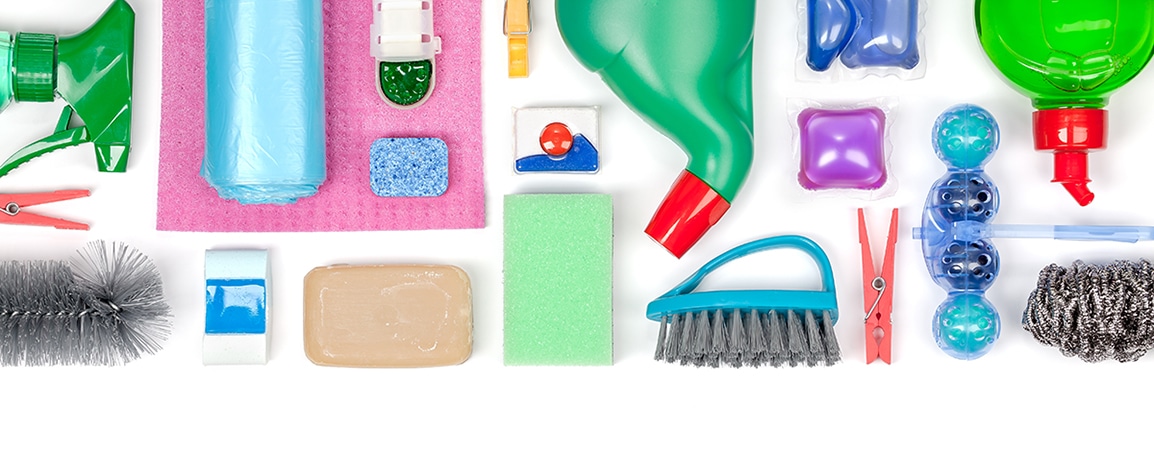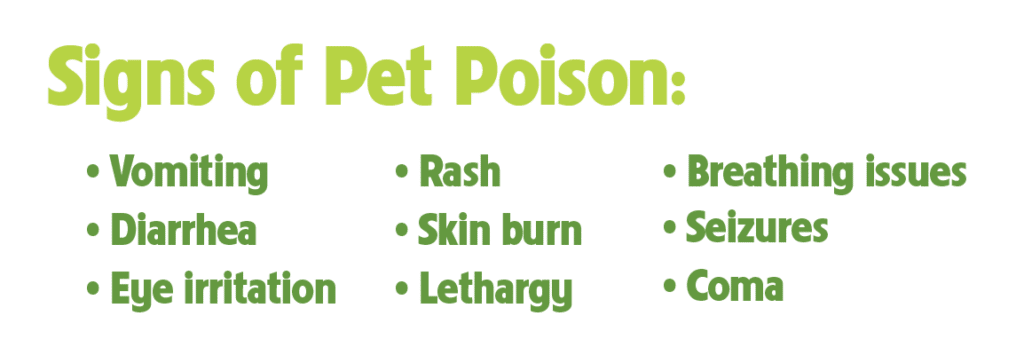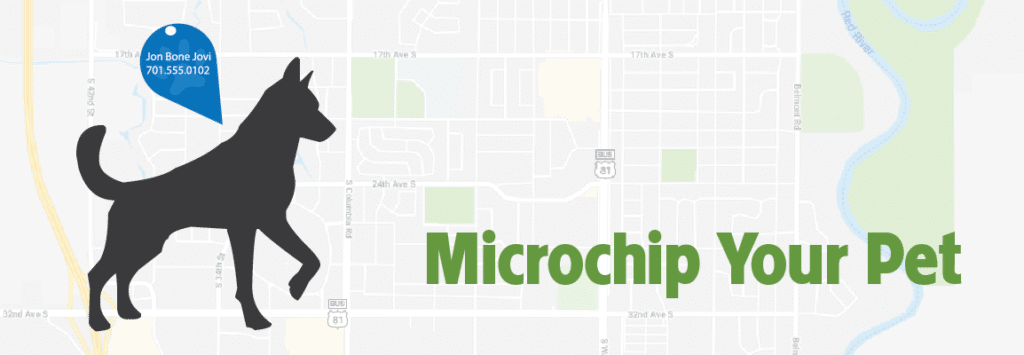From weekends filled with cleaning to hearing the call of the great outdoors as the sun glistens, spring is full of revitalizing activities. Make sure your pet is safe, healthy and happy by keeping some of the top spring hazards top-of-mind over the next couple months.

Shaking off the winter with spring cleaning is an excellent way to declutter, reduce allergens and have an overall healthier home. While you’re scrubbing and vacuuming your way to a clean space, remember to think of your pets and keep hazardous – or even deadly – cleaning products out of reach.
What to Avoid
Keep your pet out of the area you’re cleaning as much as possible to avoid harm, especially on surfaces they can lick or contact directly. Here are some common ones to watch out for:
Floor and surface cleaners – from playing and snoozing to eating and drinking water, the floor is where many pets spend most of their time. Some of ours are also known to roam counters and shelve tops. Keep pets away from these types of surfaces when cleaning until they are completely dry. Make sure to remove any food or water dishes from the area to avoid accidentally spraying cleaners into them.
Toilet bowl cleaners – some toilet bowl cleaners can cause issues for pets that tend to take a sip from the porcelain throne. Products that attach to the inside of the toilet bowl or tank and continuously release cleaning agents can be poisonous to pets. Keep seats securely closed or avoid these types of products and opt for a safer solution.

Fabric softener sheets – if you have a kitten or pup that likes to get cozy in your laundry, beware of the potential hazards fabric softener sheets can bring them. If ingested, the detergents used in the sheets can cause problems over time like vomiting, ulcers, and blockage.
Rat and mouse poison – have some unwanted rodent visitors in the home? If you’re ever using rodenticides to kill pesky vermin, make sure to keep your animals far away from the scene. If possible, opt for solutions that are less harmful to pets such as peppermint oil or traps that seal the chemical and rodent.
Gardening products – getting your green thumb out-and-about is very therapeutic to many. Depending on what products you use, this could have the opposite effect on your pet. Fertilizers can cause gastrointestinal issues and different kinds of mulch can harm animals if ingested. Keep your pets away from these areas when they’re outside as much as possible.
To learn more, you can view the Pet Poison Helpline’s poison list and get safety guidelines for pets and poison.
What to Do in Emergencies
We try to do the best we can for our pets, but life happens and sometimes they get into things they shouldn’t. Know the signs and symptoms of poisoning in your pet so you can get help immediately.

If you think your pet has ingested or come in contact with poisonous products and is in need of medical attention, immediately call the Pet Poison Helpline or your local veterinarian for assistance.
- Pet Poison Helpline – 855-764-7661 (FYI: They charge $59 per incident)
- Grand Valley Animal Hospital – 701.757.3500

Warmer months call us and our pets outside to soak up that sun as much as possible. While you’re out and about on walks, playing in the dog park or starting to splash about in the lakes, make sure your pet can be easily identified in the event they go on their own little adventure.

In addition to always keeping your pet’s identification visible and current, microchipping offers one of the best ways to ensure your pet is safely returned to you in the event they get lost. A tiny chip implanted at the back of your pet’s neck, most animal shelters and clinics can scan them and get your contact information. Just like your tags, keep this data up-to-date with your current phone number and address.

Pesky parasites come out to thrive and play in the springtime. We advise protecting your pet against some of the top disease-carrying critters including heartworms, fleas, and ticks.
Heartworms
Most commonly seen in dogs, cats and ferrets, heartworms are internal parasites transmitted by mosquitos that live in the heart and associated blood vessels. Heartworm disease is serious and progressive, and the best way to avoid it in your pet is preventative medication. Learn everything you need to know here.
Fleas & Ticks
Fleas are an annoying pest that can transmit infectious diseases from pet to pet (and even people – gross!). They also cause skin irritations and infections that can be painful for your pet. Ticks also transmit serious infectious diseases and are commonly found in our regions wooded and brush areas. Get pets the protection they need with flea and tick preventative meds. Learn more here.

Want more spring safety tips? Or maybe you need to get your pet set up with a microchipping or preventative medication appointment? Whatever your needs, we’re here to help! Give us a call today at 701.757.3500.

